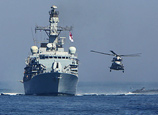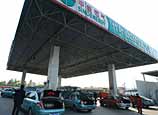
Narrowing gap
Despite the gap, Chinese brands are strongly motivated to improve and compete on the same level as the top global industrial players.
"China is well on its way. But it could take 20 to 30 years for the nation to become a globally well-known manufacturer like Germany," said Wang Weidong, commercial counselor of Chinese Consulate-General in Frankfurt.
"China needs to join hands with European counterparts through mergers and acquisitions and learn from them," he said.
A slew of Chinese companies, including Sany, Xuzhou Construction Machinery Group and Hebei Lingyun, have invested in extending their reach in Europe and they hope to absorb new technologies by recruiting German engineers and getting closer to more customers around the continent.
"We get more technical ideas from our counterparts, and they can expand sales in China and Asia. It's win-win deal," said Chen from Zoje.
As sagging global demand hurts Chinese exports, the Chinese government has repeatedly promised to encourage domestic manufacturers to improve technology and make investments on design and innovation.
In China, there are a number of manufacturers who own a list of clients that enjoy a worldwide reputation, and now, many of them have decided to work on their own brands to target high-end customers.
Bosideng Corp is one of them. The world's largest feather jacket manufacturer has been an OEM for various famous foreign fashion brands, about which Zhu Wei, CEO of Bosideng Corp UK, declined to elaborate.
"It's not a small business, worth 140 million yuan ($22.47 million) annually, but the problem is the Bosideng brand is quite new globally, especially in the European market," Zhu said.
In July, the company announced plans to open a three-story menswear store in the busiest commercial area in London, its first-ever store abroad. The store targets high-end customers.
And Bosideng has other ambitious overseas expansion plans. It intends to expand into high-end shopping malls in London, probably early this year, and it is also in talks with some European counterparts, probably from Italy, on acquisition deals.
"Numerous Chinese manufacturers don't have strong brands abroad, and they have to work for others as OEMs, reaping tiny profits. They need to change the situation with the help of think tanks," said David Feng, special assistant to the president of the Aigo Entrepreneurs Alliance.
The alliance, which was set up in 2011, aims to help Chinese companies expand overseas, establish sales networks, conduct market investigations and promote brands.
"We have assisted more than 20 domestic companies settle in Europe, and in 2013, that number will be 50 to 100," Feng said.

















 Flight attendants recruitment attracts beautiful young applicants
Flight attendants recruitment attracts beautiful young applicants


![]()
